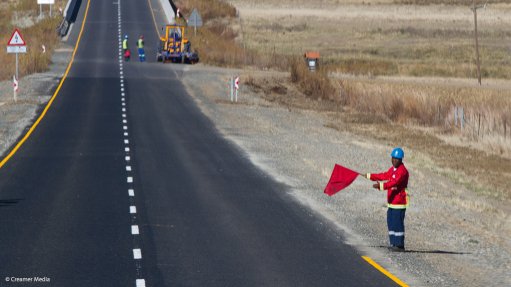
Photo by: Duane Daws
Raubex was no longer a South African National Roads Agency Limited (Sanral) or a road-building company, but a diversified infrastructure and materials group, said CEO Rudolf Fourie on Monday as he announced the group's annual results in Johannesburg.
A spate of acquisitions, aimed at achieving the goal of diversification, as well as a growing order book, had seen the company increase revenue by 14.5%, to R7.25-billion, for the year ended February 28, with operating profit up 15.2%, to R622.2-million.
A strike in Namibia and flooding in Mozambique had a combined R10-million effect on the bottom line, said Fourie.
Group operating profit margin was 8.6% for the year.
Employment had increased from 8 306 people in the previous financial year, to 9 598 people.
Recent acquisitions include a 60% share in Shisalanga Construction for R38.4-million in June last year, and a 70% share in OMV Crushers for R70.3-million in July last year.
Raubex acquired 100% of Buildmax Quarries on September 1, for R59.7-million, and 70% of Empa Structures on November 1, for R25.5-million.
Empa Structures was specifically acquired to gain expertise in concrete structures such as reservoirs and bridges, said Fourie.
The most recent newcomer to the company’s fold is Belabela Quarry, in Botswana.
Raubex acquired 74% of the company on April 18, for R43-million.
“We can use Belabela as a springboard to gain access to the very important Botswana market,” noted Fourie.
Around 25% of the group’s R8.68-billion, three-year order book was outside South Africa, with greenfield road projects in Zambia making up a substantial part of the percentage.
There was no target for a percentage of revenue to be earned outside South Africa, said Fourie, but rather one of achieving double-digit margins.
Sanral made up 27% of the 2015 order book, down from 31% in 2014, and the roughly 45% before.
Fourie said one of the noticeable changes in the 2015 order book was the increase in contracts from municipalities and provincial governments, from 7% of the order book in 2014, to 13% in 2015.
“More than half of South Africa’s black roads are in these sectors. We have seen an increase in work in the last six months, which is quite encouraging. We picked up work in the Eastern Cape, Ekurhuleni and Tshwane.
“I’m not saying it is a turnaround, but I have hope – this is where the bad roads are and it would be very good for us if this trend continues.”
Looking at the broader construction sector, Fourie expected competitive conditions in the South African construction sector to continue, with margins to remain tight.
“It has not gotten worse, but it certainly has not improved either.
Fourie emphasised that Raubex’s healthy order book allowed it to tender selectively, with the focus in many instances on higher margin work.
Risks to the group in the year ahead included industrial action and commodity prices. The volatile oil price had, for example, been causing havoc with bitumen costs.